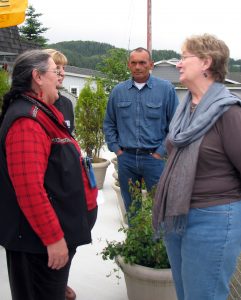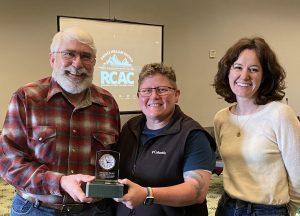
The Board’s longest-serving member, Patience Andersen Faulkner, retired after 24 years of service to the Council’s mission.
Her first-hand experience with the spill began in 1989, first working through the advocacy of Chugach Alaska Corporation as a Native representative to VECO, and later processing legal claims for many commercial fishermen who were unable to make a living afterwards. Her experience led to her becoming the longest standing Board member, representing Cordova District Fishermen United.
Faulkner worked with Dr. Steve Picou after the spill to document the profound human health and societal impacts of oil spills, which is now recommended for the list of damages that responsible parties must legally acknowledge and attempt to address in the wake of a large oil spill. This work led to one of the Council’s most successful projects, “Coping with Technological Disasters – A User Friendly Guidebook.”
Faulkner has dedicated countless hours since she was seated in 1998, as she has served multiple times as president of the Board, as vice-president, treasurer, and as a member-at-large on the Executive Committee. She has also served on a number of other committees, including Finance, Board Governance, Long Range Planning, and Information and Education.
At its meeting in May, the Board passed a resolution of gratitude for Andersen Faulkner, who received a standing ovation. The full resolution lists more of Faulkner’s accomplishments.
The Coping with Technological Disasters guidebook includes a program called “Peer Listening,” which has helped communities deal with such disasters as Hurricane Katrina, the BP Deepwater Horizon oil spill in the Gulf of Mexico, and other human-caused disasters around the U.S. and the world.
Read more about the development of the peer listening program from a 2021 interview with Faulkner: A good neighbor reflects on the art of listening
